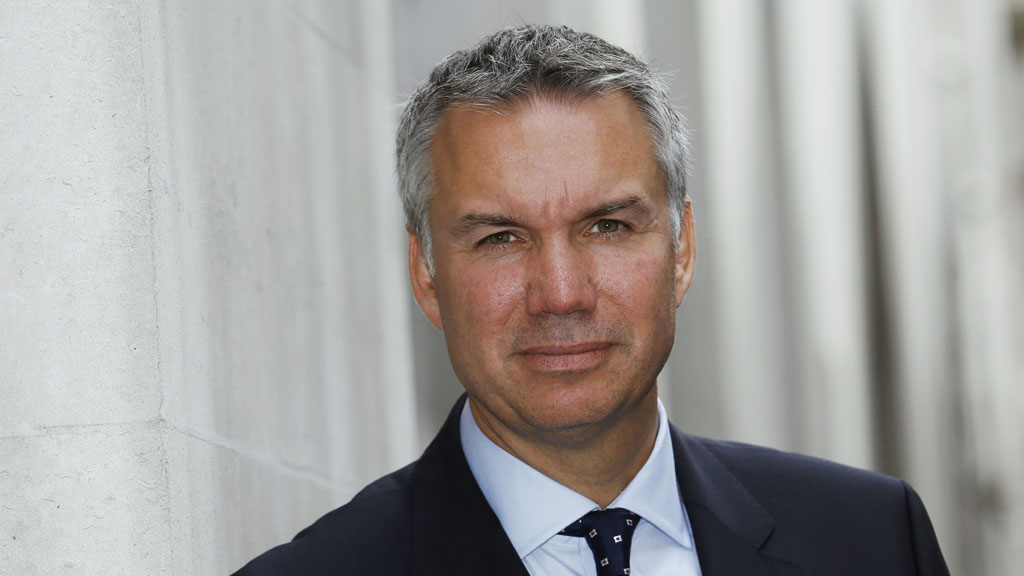Co-op accepts chief executive’s resignation
Euan Sutherland steps down as Co-op chief executive despite an eleventh hour deal to reform the troubled group’s corporate structure.
The Co-operative Group said chief financial officer Richard Pennycook has been appointed as interim chief executive.
The outgoing chief executive, who joined the group last year amid the worst crisis in its 150-year history, offered his resignation on Monday after details of his £3.6m pay package were leaked to the Observer by an insider.
In a Facebook post apparently written by Mr Sutherland, he said the leak appeared to have come “from our group boardroom” and was an attempt to undermine him as he tried to push through a modernisation programme unpopular with some members.
The resignation was interpreted as a “back me or sack me” move and within hours, it emerged that the Co-op’s 21-member board had agreed to be abolished after crisis talks.
The move was interpreted as a sign that members were finally agreeing to the corporate governance reform the new chief executive had championed. But it was not enough to persuade Mr Sutherland to stay in post.
In a statement today, he said: “It is with great sadness that I have resigned as chief executive. I have given my all to the business and had hoped to be able to lead its revival.
Reforms ‘impossible’
“However, I now feel that until the Group adopts professional and commercial governance it will be impossible to implement what my team and I believe are the necessary changes and reforms to renew the Group and give it a relevant and sustainable future.
“Saving the Co-operative Bank and with it the Co-operative Group from administration was a huge task, but the changes required do not stop there, with fundamental modernisation needed to safeguard the 11 future for our 90,000 colleagues and millions of members.
“The Group must reduce its significant debt and drive major efficiencies and growth in all of its businesses, but to do so also urgently needs fundamental governance reform and a revitalised membership.
“I will not accept the retention payments and long-term incentive payments previously agreed for the delivery and protection of value in the Group and the Bank, even though this was successfully delivered.”
Ursula Lidbetter, chair of the group, said: “Euan’s resignation must now act as a catalyst for the real and necessary change which the Group must go through. I would like to thank Euan for his hard work and leadership and to wish him the very best for the future.”

Board abolished
Under reform plans announced today, the Co-op’s old board system will be replaced by a dual structure, with a new streamlined board including only executive and non-executive directors responsible for commercial decisions.
Those elected from the Co-op’s membership will sit on a separate board responsible for safeguarding the group’s traditional mutual values.
The reform proposal comes after concerns were raised about the influence of non-professionals in the company hierarchy. Former bank chairman Paul Flowers, who resigned after being caught in a drugs sting by the Mail on Sunday, had no finance experience.
He was able to take over the helm of the bank thanks to the Co-op’s unususal democratic corporate governance structure.
The group is jointly owned by more than 6 million individual members and around 80 independent co-operative societies.
The ethos of the business is to serve these members and their communities, reflecting their views in its activities and in a social and campaigning agenda including fair trade and climate change.
Individual members can stand for election to area committees, regional boards, and ultimately the group board.
Pay deal defended
The Co-op used a message on its Facebook page to defend the remuneration offered to top executives as the group faces a £2bn loss.
Large-scale job cuts are in the offing after a disastrous year in which Co-op’s banking arm needed to be rescued when a £1.5bn hole was found in its balance sheet.
The post read: “It is against that backdrop that we recruited Euan Sutherland and a top team with the skills and experience needed at this crucial stage in our history, reflecting the necessity for change.
“The remuneration packages of our executives are in the middle of a range of comparable companies. This represents an increase on the pay of their predecessors to reflect the greater commercial, management and turnaround experience they are bringing to bear.”